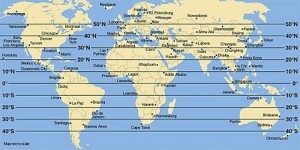Definition of "Critique of Judgment" (1790)
Miscellanea / / February 06, 2022
concept definition
It is the third and last of the three Kantian Critiques, comprising a mediation between the areas seen in The Critique of Pure Reason (1781), where Kant dealt with theoretical reason in its cognitive aspect, reaching the conclusion that human knowledge is limited to sphere of the phenomenal —what appears to us in experience—, governed by necessary laws, namely, the laws of nature, and the Critique of Practical Reason (1788), in which he explored another type of legality, not necessary but characterized by freedom, not in the theoretical field but in the practical.

Professor in Philosophy
The Judgment as a Middle Term
Judgment, in the order of the faculties of knowledge, forms a middle term between the understanding (which has its own sphere in the faculty of knowing, as far as contains a priori constitutive principles of knowledge) and reason (which does not contain a priori constitutive principles except in relation to the faculty of to wish). If the Critique of Pure Reason investigated the a priori conditions of knowledge and the Critique of Practical Reason, those of
conductmoralNow, the problem that the Critique of Judgment seeks to solve is whether it also has a priori principles by itself.The Judgment, if you think about analogy with reason and understanding, it must also enclose in itself a priori principles. However, its characteristic principle must not, however, be derived from a priori concepts, since concepts belong to the understanding and the Judgment is concerned only with their application.
The principle of application of the Judgment produces perplexity (above all, in aesthetic judgments), because it is not about the application of concepts (as it happened in the judgments explored in the Critique of Pure Reason, which produced knowledge), but to search for a rule that is not given, which is not entirely objective, but can be subjective. This means, ultimately, that it will be a question of seeking a mediation between the understanding, in both cognitive faculty, and reason, as a pragmatic faculty, but such mediation cannot take on a character cognitive or theoretical, but will be linked to pure feeling.
The types of judgment: determining and reflective
When we speak of the faculty of Judgment, we refer to the faculty of subsuming the particular under the universal. Kant establishes, from the beginning, a general distinction between determining judgments (those in which the particular and the universal are given, so that the judgment subsumes the particular under the given universal) and reflective judgments (in which only the particular is given and the faculty of judgment must find the universal by reflection). Here, reflection means putting certain representations in relation to our faculties.
The reflective judgment reflects on objects already determined, to find the agreement between them and the subject, in such a way that there is a harmony between things and ourselves as subjects knowing. This harmony is related to the assumption that we assume a purpose of nature in its multiple particular cases, therefore, we always seek a Unit under which everything particular is subsumed, as if there were a teleology that ordered the world. The purpose in the ordering of nature, then, we find it in two ways, in two spheres of judgment: aesthetic and teleological.
The aesthetic judgment and the teleological judgment
The aesthetic judgment is divided, in turn, into two types: the judgment of the beautiful and the judgment of the sublime. When we say that something "is beautiful", we assume that it is an objective property of the thing. However, Kant points out that the judgment of beauty depends on the relationship between the subject and the object, mediated by the feeling of pleasure.
The same happens with the judgment about the sublime: sublimity is not an essential property of the object in question, but rests on the way in which the subject is linked to the object. In both cases, we are faced with reflexive judgments, which are differentiated by the faculties that intervene in each case. Reason intervenes in the judgment about the sublime, while this does not happen in the judgment about the beautiful.
On the other hand, the teleological judgment is distinguished from the aesthetic judgment because in the latter there is no manifest end; On the other hand, in the teleological judgment, man considers himself to be the ultimate end of nature and, in this way, builds a bridge between the sensible world and the world of reality. morality.
Bibliographic references
Giovanni Reale and Dario Antiseri (1992) History of thought philosophical and scientific. II. Of
humanism to Kant. (Il pensiero occidentale dalle origini ad oggi. Volume II. Editrice La Scuola, Brescia, fifth ed. 1985), trans. by Juan Andres Iglesias, Barcelona.
Kant, Immanuel (1984) Critique of Judgment, trans. Manuel Garcia Morente, Madrid, Espasa Calpe.
Topics in "Critique of Judgment" (1790)


